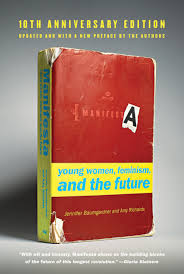This is Alison Piepmeier, recovering well from brain surgery, and planning to be back on Girl with Pen really soon. In the meantime, I’m delighted to introduce you to this month’s guest columnist, Eliza McGraw, writer, mother, and great friend of mine.
Earache
I’m here in Charleston, South Carolina visiting my pal Alison Piepmeier, whom you all know from her blog here on Girl with Pen. Theoretically, I am helping her, Walter, and Maybelle out, given Alison’s recent brain surgery. And I am bunking with the baby and did just now make some pumpkin muffins, but I am not sure that I am helping as much as I am just, as always–we have been friends since 1994, when we met in graduate school, I just have avoided putting my education to the same kind of productive use that Alison has–enjoying being with Team Biffle-Piepmeier.
To be here for the week did, however, entail a thorough job of organization on my part. I live in Washington, D.C., and am a freelance writer. I also am the primary caregiver, driver, cupcake-maker, room parent, tutor and hockey mom to my 6 and 8-year-old children. My days are happily complex so the list on instructions I left behind–also known as “the matrix”–included such entries such as “Wednesday–bring in a green food for St Patrick’s day,” “Thursday: put Simon’s lacrosse shorts in backpack,” “Friday is P.E. day–Macie
in sneakers.” It had a long list of contact information for the many family members, friends, and neighbors who knew I’d be away, permission slips for various pickups, and a refrigerator roll call so my husband Adam would know what I had made to eat.
On Monday, I received an email from Adam inquiring when the pediatrician’s office opened, since Macie (my 6-year-old) had an earache. We’re not an earachey kind of family, as a rule–no tubes, no audiologists–so I was concerned. Macie has also wound up in the hospital more than once, so any time she develops the slightest sniffle, I get a little anxious. Also, it was only day two. Things were already falling apart already?
Adam is an architect, and while it’s not as if he were expected in the OR momently, he was supposed to be at work with roll of drawings spread out on the desk (my mental image of architectural design), not heading out to the pediatrician’s. If you looked at the matrix, there was no mention of “Take Macie to pediatrician.” (If there had been, I would have written, “Remember insurance card and to stop for bagel on the way
home at bagel shop on Connecticut Avenue.”)
Even knowing that Adam, eminently competent and adaptable, had Earache 2010 covered, I felt like something was a little off all day as I played with Maybelle, went to the grocery store with Alison, and generally existed here in Charleston, 539 miles from the situation room at home. When I called and heard Macie crying in the background (over Adam’s shouting from the front seat “She’s fine! We’re going to get medicine now!”) I experienced that sensation that makes you realize why people say hearts “sink.” Even once I received the update that Macie was at my mom’s and tucked under the same animal-themed blanket I used to curl up with when I felt sick (nosebleed stains, 1970s brown and orange zebras) while watching Mulan, I felt like I should have been with her.
But as the day wore on–hearing Macie’s voice be a tad bossy about which of the previews she deigned amusing enough to watch reassured me that her health was stabilizing–I realized I only sort of felt that way. I missed her, and hated to think of her in any kind of pain. But I was glad to be here, with Alison, Walter, and Maybelle. I learned that is possible to be in the right place, even if that place is not with my own children for a certain painful moment, the one thing even I never planned for.

 Jennifer Baumgardner and Amy Richards’ ManifestA turns 10, and an anniversary edition has just been released from Farrar, Straus, and Giroux. For a great retrospective, see Courtney Martin’s piece this week at The American Prospect,
Jennifer Baumgardner and Amy Richards’ ManifestA turns 10, and an anniversary edition has just been released from Farrar, Straus, and Giroux. For a great retrospective, see Courtney Martin’s piece this week at The American Prospect,  For my (new!) regular column over at
For my (new!) regular column over at 
